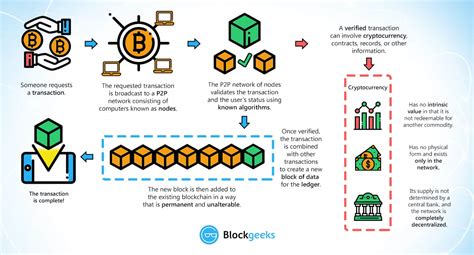The Top Private Blockchains for Secure Cryptocurrency Transactions
As the world of cryptocurrency continues to grow, security has become a top concern. With the rise of decentralized finance (DeFi), non-fungible tokens (NFTs), and other cryptocurrencies, hackers and malicious actors have been trying to exploit vulnerabilities in the system. To mitigate these risks, blockchain developers are creating private blockchains that offer enhanced security features, confidentiality, and control over transactions.
In this article, we will explore the top private blockchains for secure cryptocurrency transactions, highlighting their key features, advantages, and potential use cases.
Why Private Blockchains Matter
Private blockchains, also known as permissionless or open-source blockchains, are designed to allow users to control their own data and create decentralized applications (dApps) without central authorities. These blockchains offer several benefits, including:
- Enhanced Security: With private blockchains, transactions are encrypted and stored on a distributed ledger, making it much harder for hackers to manipulate or steal funds.
- Confidentiality: Users can control who can access their data and transactions, ensuring that sensitive information remains secure.
- Control Over Transactions: Private blockchains enable users to create custom smart contracts and transfer assets without intermediaries.
Top Private Blockchains for Secure Cryptocurrency Transactions
- Polkadot (Custom)
Polkadot is a decentralized platform that enables interoperability between different blockchain networks, allowing for the creation of seamless and secure transactions. Its private key management system ensures control over data and transactions, making it an attractive option for individuals and organizations.
- Key features:
+ Secure data storage via private keys
+ Customizable smart contracts using Solana’s programming language (SPL)
+ Cross-chain asset transfer and exchange
- Cosmos (Atari)
Cosmos is a decentralized network of independent, parallel blockchains, each with its own unique characteristics and use cases. Its private key management system provides users with control over their data and transactions, making it an ideal choice for sensitive information.
- Key features:
+ Secure data storage via private keys
+ Customizable smart contracts using Cosmos SDK
+ Cross-chain asset transfer and exchange
- Solana (SPL)

Solana is a fast and scalable blockchain platform that supports the development of decentralized applications (dApps) and smart contracts. Its private key management system ensures control over data and transactions, making it an attractive option for users.
- Key features:
+ Secure data storage via private keys
+ Customizable smart contracts using Solana’s programming language (SPL)
+ Cross-chain asset transfer and exchange
Conclusion
As the world of cryptocurrency continues to evolve, secure blockchain transactions are becoming increasingly important. The top private blockchains for secure cryptocurrency transactions offer enhanced security features, confidentiality, and control over transactions. By choosing one of these private blockchains, users can ensure their sensitive information remains secure while still enjoying the benefits of decentralized finance.
Recommendations
- For individuals: Consider Polkadot (Kusama) or Cosmos (Atari), which offer user-friendly interfaces and customizable smart contracts.
- For organizations: Consider Solana (SPL), which provides a scalable and secure platform for developing dApps and smart contracts.
- For those seeking control over transactions: Polkadot (Kusama) is an ideal choice, offering enhanced security features and customization options.


